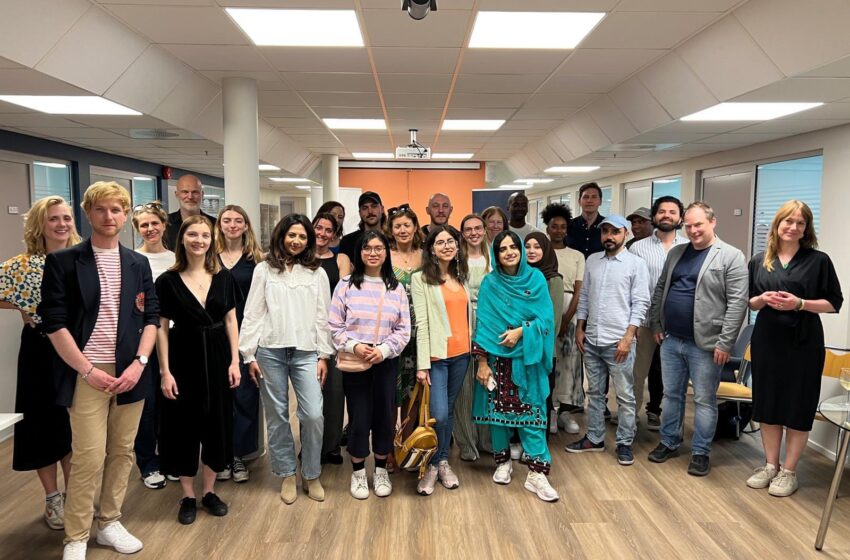Indian State Should Focus on Unconventional Methods: Jamal Nasir Baloch
Dr. Mahrang Baloch Highlights Enforced Disappearances in Balochistan

OSLO: Dr. Mahrang Baloch, leader of the Baloch Solidarity Committee (Baloch Yakjehti Committee), participated in an international seminar jointly organised by PEN Norway, World Expression Forum, and Utøya Island to support young activists opposing the oppressive states.
Expressing her views on the first day of the three-day conference, Dr. Mahrang Baloch said that Pakistani security forces have killed a large number of educated Baloch youth—mostly students, engineers, doctors, political activists, and journalists—under the guise of counter-insurgency operations and restoring peace over the last two decades.
She highlighted the difficulty in determining the exact number of enforced disappearances in Balochistan, as the state does not allow international human rights groups like the United Nations or Amnesty International to investigate the nature of this human tragedy.
“When local activists and rights groups try to document such cases and raise their voices, they are victimised and disappeared,” she added.
Dr. Baloch urged the participants of the seminar to research what is happening in Balochistan, as it is very difficult to tell these stories. She narrated her personal experience, saying, “I have been campaigning against enforced disappearances for more than 10 years because I was forced and affected by disappearances when I was a teenager. My father was forcibly disappeared by Pakistani state agencies, and his bullet-riddled body was found in 2011 when I was studying medicine in 2017, my younger brother was abducted but was released after three months of campaigns and protests.
She added that her case was not unusual. “There are hundreds of young women like me.”
Dr. Baloch pointed out that, unlike her, who knows she is an orphan and her mother a widow, there are hundreds of children, teenagers, and young adults whose fathers, uncles, or brothers are still missing. They wait for weeks, months, and in some of the worst cases, years, without knowing if their loved ones are alive or dead.
She explained that her campaign’s demands are simple: the Supreme Court of Pakistan, the Parliament and the security forces should release those who have been forcibly disappeared or at least produce them in a court of law if they are involved in any crimes.
Dr. Baloch charged that Pakistani authorities resort to violence instead of addressing their problems.
Speaking about her recent march to Islamabad, she said, “I marched 1,600 kilometres on foot for more than a month in December before arriving in Islamabad on a cold evening with children and women.
“We were welcomed with police brutality, including baton charges, attempted humiliation and being barred from going to the Press Club.”
She added that the state-controlled media launched a malicious campaign against her and other participants of the march. On social media, they were abused and trolled by state-sponsored accounts. Journalists were intimidated and prevented from providing media coverage, and civil society was pressurised as well.
Dr. Mahrang Baloch said that Pakistan’s security agencies forced people not to join their peaceful movement. Despite setting up a protest camp outside the National Press Club in Islamabad, the media ignored them.
She reiterated that their peaceful struggle to restore peace in Balochistan will continue and needs the support and solidarity of all groups and people who believe in basic human rights and humanity.
She concluded her speech by thanking the organisers of the event and saying, “Our story was not heard in our country, but today the whole world is hearing us.”









